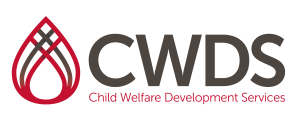CWDS Curriculum
Identity Development and Foster Care
Level: Advanced Practice – Lineworker
Credits: 6
Intended Audience: New and experienced lineworkers
Intended Objectives:
- Identify key theoretical principles in identity formation during a child’s development
- Identify key areas of identity formation for adolescents and how foster care impacts identity formation
- Demonstrate cross cultural communication and collaboration skills with interdisciplinary partners to enhance healthy identity formation in children
- Develop a culturally sensitive case plan that enhances healthy identity formation in a child
- Value that disproportionality in foster care requires collaboration in problem solving
with caregivers to ensure healthy identity formation in children - Value the variety of child rearing practices that enhance identity formation
- Value introspection as key to professional growth in working with professionals and families of different cultures
Topics Include:
- Theories on identity formation in a cultural context
- Sexual and Gender Identity
- How disabilities impact identity formation
- The “culture” of foster care and youth’s perceived identity as a foster child
- Formulating case plan activities to address identity confusion
- Focus on cross cultural collaboration and communication to assist youth in healthy identity formation
CalSWEC Competencies Addressed:
1.2 Student demonstrates self-awareness and the ability to address and overcome personal bias in assessing and working with clients of diverse backgrounds.
1.6 Student understands the influence and value of traditional, culturally based childrearing practices and uses this knowledge in working with families.
3.5 Student demonstrates an understanding of basic child development and how developmental level affects a child’s perception of events, coping strategies, and physical and psychological responses to stress and trauma.
3.10 Student understands how attachment, separation, and placement affect a child and family and how these experiences may influence a child’s physical, cognitive, social and emotional development.
4.6 Student demonstrates knowledge of after-care services and skill in developing independent living plans with foster youth.
5.1 Student demonstrates understanding of child and youth development, including physical, cognitive, social, and emotional components, and can recognize developmental indicators of abuse or neglect.
5.4 Student demonstrates understanding of the influence of culture on human behavior and family dynamics.
5.5 Student demonstrates understanding of how the strengths perspective and empowerment approaches can positively influence growth, development, and behavior change.
6.5 Student demonstrates understanding of the dynamics of human sexuality and gender identity.
Posted In:Culture & Diversity
Mental Health & Behavioral Health



